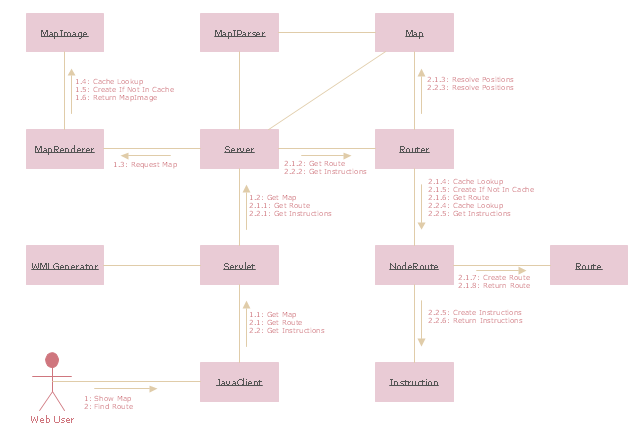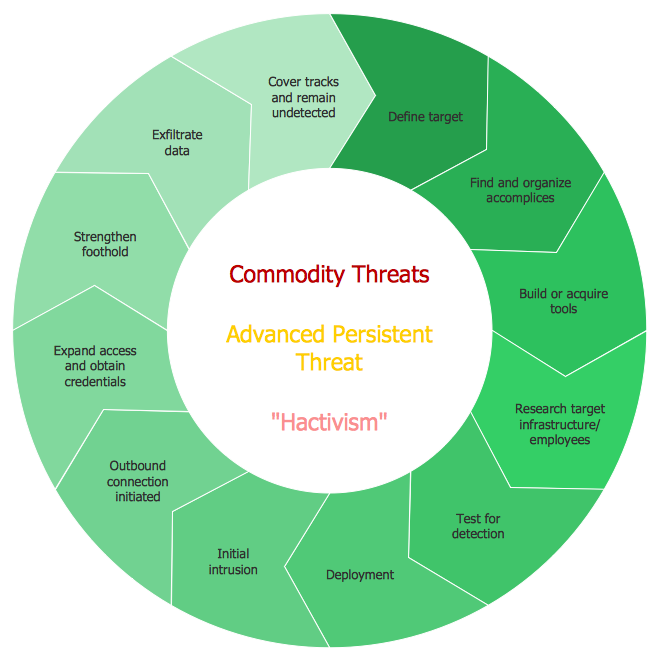"The client–server model of computing is a distributed application structure that partitions tasks or workloads between the providers of a resource or service, called servers, and service requesters, called clients. Often clients and servers communicate over a computer network on separate hardware, but both client and server may reside in the same system. A server host runs one or more server programs which share their resources with clients. A client does not share any of its resources, but requests a server's content or service function. Clients therefore initiate communication sessions with servers which await incoming requests.
Examples of computer applications that use the client–server model are Email, network printing, and the World Wide Web." [Client–server model. Wikipedia]
The UML communication diagram example "Client server access" was created using the ConceptDraw PRO diagramming and vector drawing software extended with the Rapid UML solution from the Software Development area of ConceptDraw Solution Park.
Examples of computer applications that use the client–server model are Email, network printing, and the World Wide Web." [Client–server model. Wikipedia]
The UML communication diagram example "Client server access" was created using the ConceptDraw PRO diagramming and vector drawing software extended with the Rapid UML solution from the Software Development area of ConceptDraw Solution Park.
HelpDesk
How to Draw a Circular Arrows Diagram Using ConceptDraw PRO
The cyclic recurrence is a fundamental property of multiple systems. The cycle is a process which consists from elements (phases, stages, stages) following each other. Many processes in astronomy, biology, chemistry, physics, mathematics, etc. have a cycle properties. It is also widely used in information technologies and marketing analysis. Graphical representation of cyclic processes can have many forms. It can be a circle, parabola, hyperbola, ellipse and others. A Circular Arrows Diagram is used as one of the statistical charts in the business, mass media and marketing. ConceptDraw PRO provides its users tools for making easy drawing Circular Arrows Diagrams.- Diagram About Function Of Communication
- UML communication diagram - Client server access | Diagramming ...
- UML communication diagram - Client server access | Diagramming ...
- Diagramming Software for Design UML Collaboration Diagrams ...
- Star Network Topology | UML communication diagram - Client ...
- Diagramming Software for Design UML Communication Diagrams ...
- Design elements - Bank UML communication diagram | Design ...
- Draw A Schematic Diagram On Process Of Communication
- UML Block Diagram | Functional Block Diagram | Process Flowchart ...
- Process Flowchart | UML Block Diagram | Functional Block Diagram ...
- UML communication diagram - Client server access | UML ...
- Diagramming Software for Design UML Collaboration Diagrams ...
- UML communication diagram - Client server access | Software ...
- Diagramming Software for Design UML Collaboration Diagrams ...
- Diagramming Software for Design UML Collaboration Diagrams ...
- UML communication diagram - Client server access | Star Network ...
- Server | UML communication diagram - Client server access | Server ...
- Diagramming Software for Design UML Collaboration Diagrams ...
- UML communication diagram - Client server access | Campus Area ...

